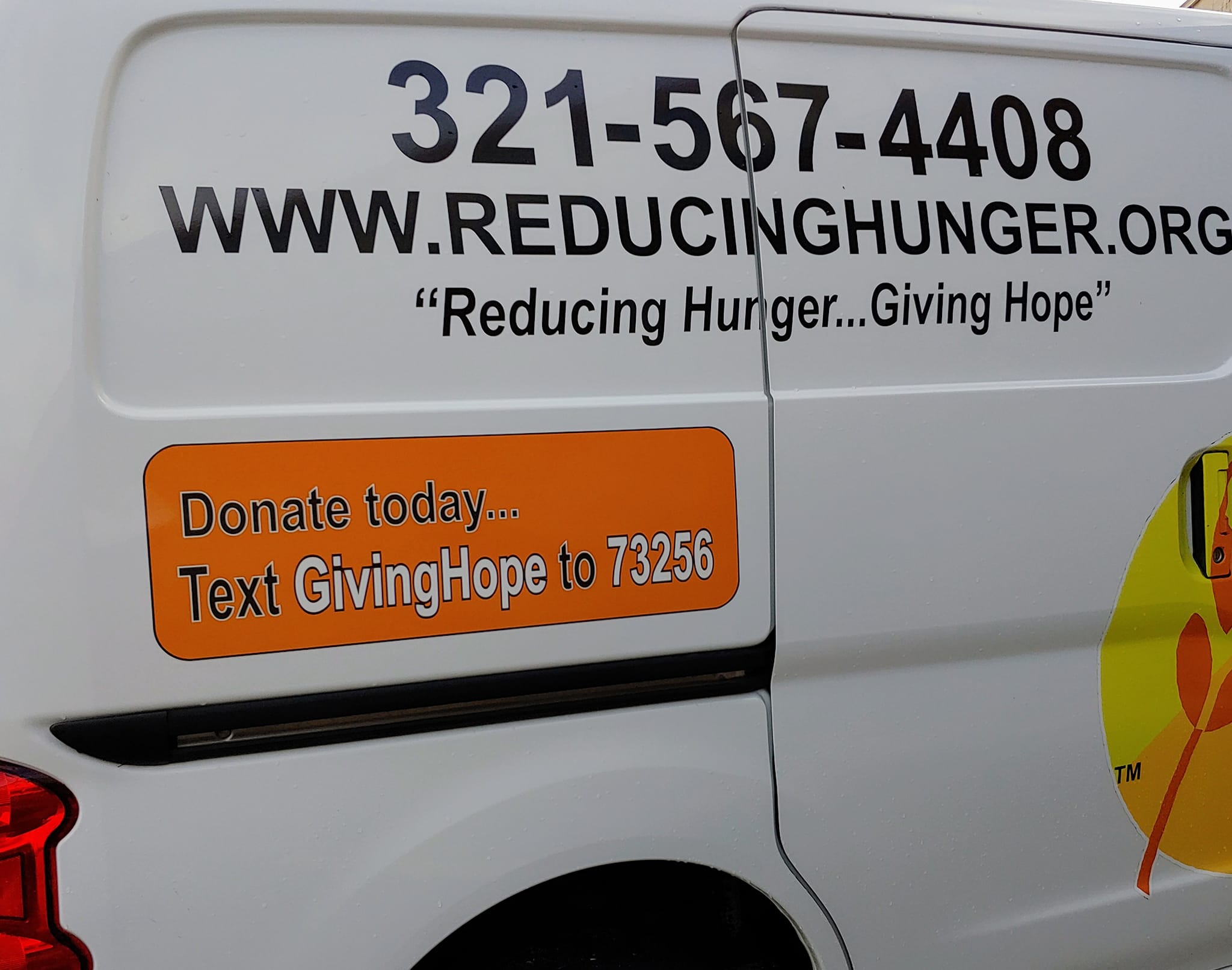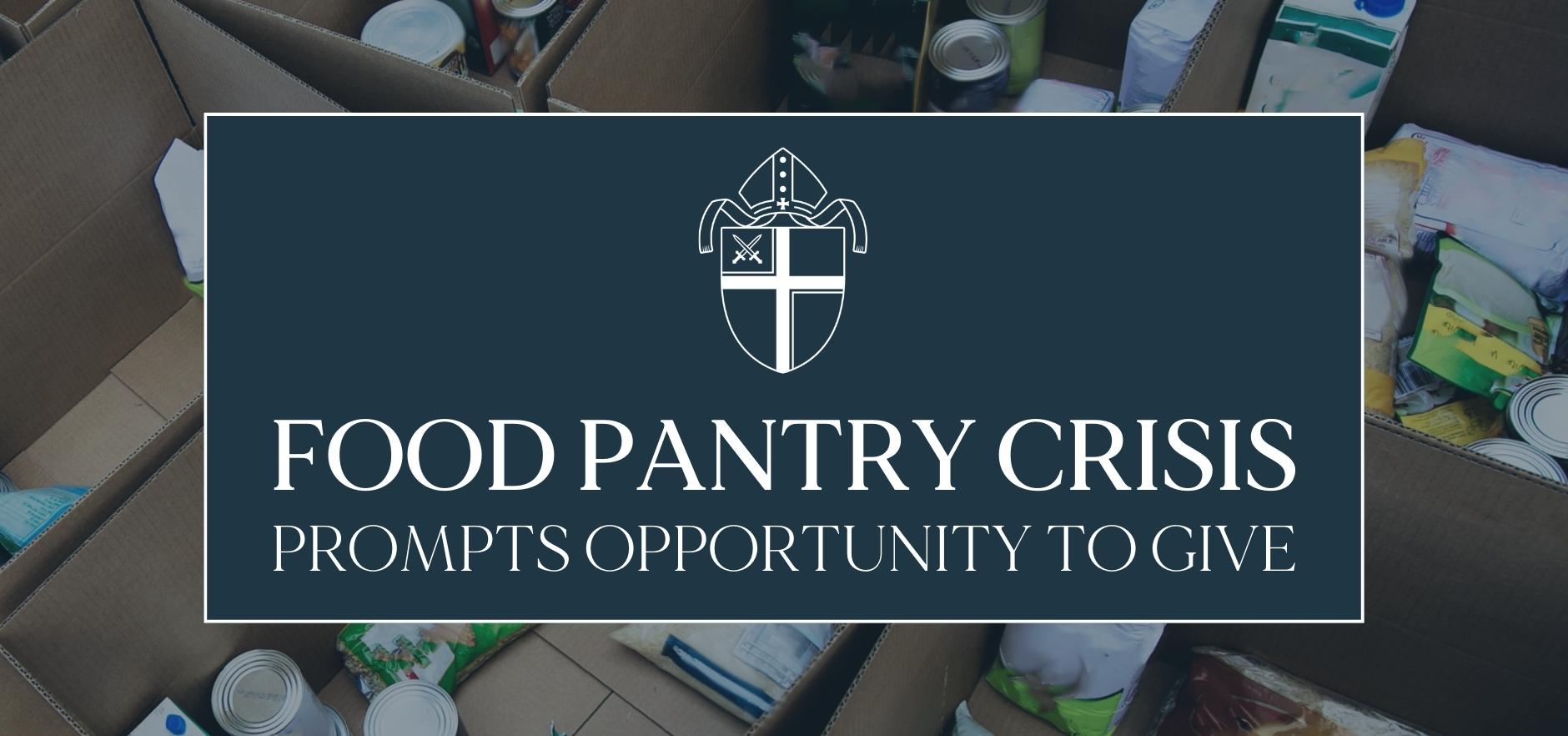Food pantries in the Diocese of Central Florida have moved into crisis mode as they deal with increased numbers because of the devastation of Hurricanes Ian and Nicole along with inflation and realize the situation is permanent. In addition, they continue to help their existing clients. All of this prompts a tremendous opportunity to support these ministries with donations of time, prayer and finances.
“Even if there is no significant property loss or damage, the economic damage to our families contributes to food insecurity and hunger,” said The Rev. Canon Scott Holcombe.
“Volusia County was one of the hardest-hit counties by Hurricane Ian outside of Southwest Florida,” explained The Rev. James Giles, executive director for Gateway to Hope, a mobile food pantry based in Ocala. “Numerous Volusia County residents have been driving over 70 miles to receive nonperishable food from Gateway to Hope’s five locations in Marion County as well as hot meals they provide on Thursdays.”
To better serve Volusia County, he has partnered with two churches in New Smyrna Beach to offer pop-up Gateway to Hope locations.
“Before Hurricane Ian, we served approximately 650 families (or 2,800 individuals) weekly, at six locations within Marion County,” Giles said. “We are helping distribute food and supplies to an additional 300 individuals every week through a network of five local ministries.”

No One Hungry uses its van to transport food to people displaced by Hurricane Ian. | Photo courtesy No One Hungry FL
The current economic crisis has added to the struggle. “Inflation is putting a strain on the pantries because inflation was hurting people before the hurricanes,” said The Rev. John “Deacon Johnny” Clark, founder and director of No One Hungry, Titusville. “Food costs are up, as is gasoline. People who are underemployed because of COVID still need to recover financially. Inflation affects not only those receiving assistance but also those assisting.”
The Rev. John Motis, diocesan disaster relief coordinator and a deacon at Good Shepherd, Lake Wales, does not see the crisis ending any time soon. “The need doesn’t seem to be short-term,” he said.
Motis is one of many who believe this is a permanent situation. “Disaster after disaster, we have observed a permanent increase in clients served each month,” said the Rev. José Rodríguez, co-rector, Christ the King and vicar, Jesús de Nazaret, Orlando. The two churches co-sponsor Orlando’s Healing Hunger Food Pantry. “On Oct. 8, we served 189 families (807 individuals), and on Nov. 12, we served 219 families (940 individuals).”
Giles echoes both opinions. “The flooding that Volusia County experienced will keep most victims homeless for six months to a year,” he said. “Flooded homes are challenging to restore to habitable standards quickly.”
The new clients at the food pantries are in desperate need.
“After Hurricane Ian, we were faced with helping families with unmet needs at The Healing Hunger Food Pantry,” Rodríguez explained. “Many of our migrant and refugee families do not qualify for the aid that FEMA offers. Our challenges beyond funding include recently losing access to fresh fruits and vegetables for our families. Losing these foods is our most significant challenge for the rest of this year. Obtaining access to fresh fruits and vegetables for our pantry is our primary goal in 2023.”
Clark has also seen the desperation. “FEMA is housing people from Titusville in motels as far north as New Smyrna Beach, so we’re also helping them,” he said. “They come to us with no clothes and no food. These people lost everything in the hurricane.”

A volunteer at Gateway to Hope packs up food to deliver to its two pop-up locations in New Smyrna Beach. | Photo courtesy Gateway to Hope.
“With all the mandatory evacuations and houses and condos falling in the Atlantic following Nicole, the New Smyrna pop-up pantries have had an uptick in need, especially for hot meals,” Giles said.
Despite the challenges, the food pantries continue to serve those in need, often forming partnerships with other churches, community groups and groups within their parishes.
Healing Hunger has partnered with Florida Blue, the Hispanic Federation and the Society of Saint Andrew. “We have been able to provide an additional week’s worth of groceries to all 250 of our families in November,” said Rodríguez.
No One Hungry has partnered with the St. Gabriel’s Daughters of the King chapter, Clark said. “They have raised money for gift cards and additional food items.”
Some additional help has come from Episcopal Relief & Development in the form of an emergency ministry relief grant. Following Hurricane Ian, Holcombe wrote a request and received a $15,000 grant. “The money will provide financial assistance to the food pantries in the diocese that need crisis support following the storms,” he said.
Even with the grant money, the food pantries still face a combined $25,000 shortfall.
If you would like to help, please send your donations to Episcopal Diocese of Central Florida, 1017 E. Robinson Street, Orlando, FL 32801. Make checks payable to “The Bishop’s Discretionary Fund,” and put “FOOD” in the memo line. For online giving, visit this link, select “Bp Discretionary-Pantries” and type “FOOD” in the memo field.

